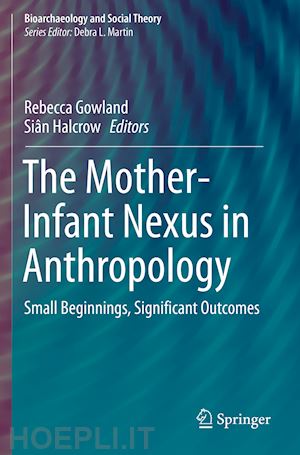
Questo prodotto usufruisce delle SPEDIZIONI GRATIS
selezionando l'opzione Corriere Veloce in fase di ordine.
Pagabile anche con Carta della cultura giovani e del merito, 18App Bonus Cultura e Carta del Docente
Rebecca Gowland is an Associate Professor in Human Bioarchaeology at the Department of Archaeology, Durham University. Her research focuses on the inter-relationship between the body and society in the past and she is particularly interested in the life course and age as an aspect of social identity. She has co-edited the Social Archaeology of Funerary Remains (2006, Oxbow) and Care in the Past: An Interdisciplinary Perspective (in press, Oxbow), and has co-authored Human Identity and Identification (2013, CUP). In addition, she has published widely in peer-reviewed journals on methodological and theoretical approaches to the study of skeletal remains. Rebecca teaches bioarchaeology, with a particular emphasis on palaeopathology, to undergraduate and postgraduate students











Il sito utilizza cookie ed altri strumenti di tracciamento che raccolgono informazioni dal dispositivo dell’utente. Oltre ai cookie tecnici ed analitici aggregati, strettamente necessari per il funzionamento di questo sito web, previo consenso dell’utente possono essere installati cookie di profilazione e marketing e cookie dei social media. Cliccando su “Accetto tutti i cookie” saranno attivate tutte le categorie di cookie. Per accettare solo deterninate categorie di cookie, cliccare invece su “Impostazioni cookie”. Chiudendo il banner o continuando a navigare saranno installati solo cookie tecnici. Per maggiori dettagli, consultare la Cookie Policy.